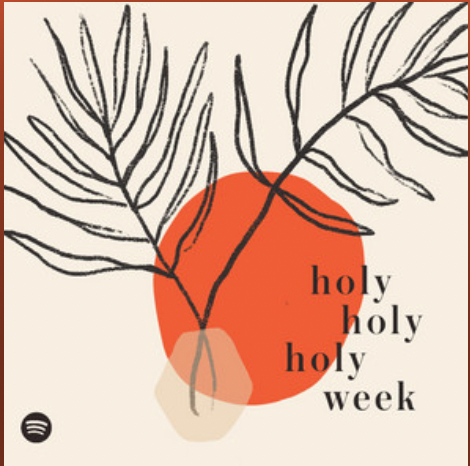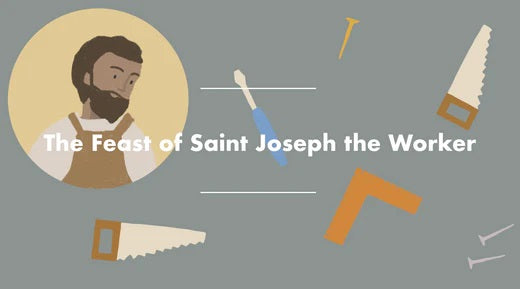Catholic Relief Services One Planet One Family x Be A Heart
As Catholic women, we understand what it means to have a responsibility towards our families, our communities and the world around us. We also know that in order to thrive, we must come together as one—to offer support in any way we can. Across the world, Catholic Relief Services is working shoulder to shoulder with communities to survive in the face of climate change. But surviving is not enough. We must work together and act now to protect our planet so our sisters and brothers can thrive.
In honor of Earth Day, we are thrilled about the opportunity to partner with Catholic Relief Services (CRS) to create a piece that depicts their climate change initiatives. Our collaboration helps shed light on the environment and how climate change has affected our communities.
Behind The Design

Erica chose to illustrate a dinner table because it is a sacred, safe place in our homes and for our families. It is where we are nourished, where we pray as a family and where we connect with each other. Although, a full dinner table is not a certainty for all. As climate change affects our world, those who have contributed the least to the climate crisis are impacted the most. For some, food resources are diminished— Higher temperatures are changing the farming seasons and crops and soil are ruined by flooding. For others, their shelters are wiped out by climate disasters.
The table in the illustration is full of a variety of foods that relate to the initiatives CRS provides, through the generosity of supporters, to help families and communities learn how to adapt to climate change. The icons on the dishes are motifs of elements on our planet that we must care for.
The plate says, “One Planet. One Family.” — The motto of CRS’s initiatives around the climate crisis.
The fish on the plate relate to a family in the Philippines. For years, an elderly couple worked hard as coconut farmers. Periods of heavy rain caused flooding, resulting in difficult farming seasons. Through the workings of a CRS Program, this family received training and assistance to build their own fishpond. They bought little fish to stock the pond, fish food and a net. The fish grew bigger, and soon they were able to sell them at the market. The fishpond also provided food for their family so they could enjoy nutritious meals together.
The carrots represent a young man in Bangladesh who decided to grow and sell vegetables to help support his family. Bangladesh experiences an intense monsoon season each year, which causes flooding and destroys farms and crops. His home is in a lowland, where flooding is a regular and disastrous occurrence. The monsoons are becoming more frequent and severe, making it difficult to farm and earn an income. Through CRS Training, he learned how to protect his plants from flooding by putting them on raised beds and how to make and use organic fertilizer to grow healthier crops.
The basket of bread relates to a story of a middle aged father of five in Honduras. Rising temperatures, erratic rainfall patterns and a recurrent drought have pounded the Dry Corridor (a strip of territory that runs through Guatemala, El Salvador, Honduras and Nicaragua) in recent years, depleting harvests and leaving millions hungry. This father said that he planted but could not harvest due to the lack of water and temperature. With a program implemented by CRS, he built a water reservoir and drip irrigation system. Now, he collects rainwater during the wet, winter months in the reservoir and delivers that water directly to the roots of his plants during the hot, dry summer months. He can now bring precious food to his family and community.
The teapot has a little family farm, which represents a story of a family in Kenya. Most people in this area raise livestock, such as goats and camels, and a few are farmers. They rely on rain and river water to irrigate their crops and feed their animals. Today, it is raining less and less in Turkana, and, when it does rain, it can be unpredictable and intense, leading to floods that wash away the seeds. This family participated in a CRS Program that installed a water well in their village and trained them in new farming techniques. They are now leaders in their community.
The tomato has the saying, “Late have I loved you,” which is a nod to Saint Augustine, but also relevant to how we are all late to loving the Earth. As Pope Francis says in Laudato Si’, “Our relationship with the environment can never be isolated from our relationship with others and with God.”
Importance Of Celebrating Earth Day
In caring for our Earth, we are caring for each other. I think Pope Benedict XVI said it really well in his encyclical: "The environment is God's gift to everyone, and in our use of it we have a responsibility towards the poor, towards future generations and towards humanity as a whole."
In our dignity for all, we all deserve shelter for our family and food on our tables - Something we all too often take for granted. The work that CRS is doing on the ground to help with long term solutions is amazing, and we are grateful for their efforts. With the purchase of this print, you are helping to build a better world for our global family. All profits will be donated to the work of CRS.
To shop the illustration, click here. To learn more about CRS, click here.
Looking to make a difference in your home? Check out our NEW Reusable Paper Towels!


